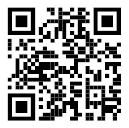INTERNET
Here Come COVID-19 Vaccine Passports
What Businesses Need to Know
By Joe Dysart

vaccine passports for workers.
Businesses strangled by COVID-19 will soon be able to guarantee a relatively safe return to the workplace with digitized, highly verifiable vaccine passports that prove workers have been vaccinated against the virus. While the requirement for such vaccine certifications (or lack thereof) appears certain to trigger controversy in coming months, their emergence as tools of trust is a certainty.
For example, heavy hitters from the worlds of health and high tech—including the Mayo Clinic, Microsoft and the health insurer Cigna—are already putting one version of a digital passport together. The system is designed to enable workers to show a “certified vaccinated” passport on their smartphones to employers, and paper printouts of the passport will also be available.
The technology is already available at Walmart, where customers who are vaccinated at the store or at Walmart affiliate Sam’s Club can use a store app to connect to a third-party health app that issues a passport. Together, the store and the certification company behind the health app work together to verify and create a digital record confirming that the customer has been vaccinated. Once verified, the customer is issued a proof-of-vaccine passport that can be shown to employers and others on a smartphone or a printout on paper.
“Our goal is to give customers vaccinated at Walmart free and secure digital access to their vaccine record and enable them to share that information with third parties seeking to confirm their vaccination status,” said John Furner, CEO and president of Walmart U.S.
In practice, Walmart or Sam’s Club shoppers looking to secure vaccine passports create a free digital account on the Walmart or Sam’s Club store app and agree to share their vaccination history. While they’re online using the store app, they also choose a third-party health app that they want to issue the vaccine certification—either the Common Pass app, the CommonHealth app, or the Clear app.
After a selection is made, getting a vaccine passport is simply a matter of scheduling an appointment at either Walmart or Sam’s Club, getting injected with a vaccine, and getting issued the passport.
“A secure, convenient solution to verify COVID-19 vaccination will play an important role in accelerating a healthy and safe return to work, school and life in general,” said Joan Harvey, president of care solutions at Evernorth, Cigna’s health services business for the system Walmart is using.
Added Paul Meyer, CEO of The Commons Project Foundation: “We applaud Walmart’s strong commitment to empowering customers with access to their health information using open standards. Not only can this help facilitate a safer return to normal life during COVID, but empowering people with their health data can also help improve the quality of the health services they receive in the future.”
New York State is another early developer of a vaccine passport. There, the government has created the Excelsior Pass—a digital passport that appears on a smartphone in the form of a QR code. Like Walmart’s passport, Excelsior Pass can also be printed out in hard-copy form.
Businesses scanning Excelsior Pass can verify that the owner of the passport has been vaccinated against COVID-19 or has at least tested negative against the virus. Developed by IBM and based on IBM’s own IBM Digital Health Pass, the digital certificate was first used by the general public in February at a Brooklyn Nets game.
“This solution can provide New York and other states with a simple, secure and voluntary method for showing proof of a negative COVID-19 test result or certification of vaccination,” said Steve LaFleche, general manager of IBM Public and Federal Market.
Mastercard is yet another player advancing a vaccine passport solution for businesses. The goliath credit card company announced in March that it’s partnering with the International Chamber of Commerce to come up with its own version of a digitized vaccine passport.
“Delivering a global, interoperable health pass system can happen only if we come together in a way that meets the needs of everyone involved,” said Ajay Bhalla, president of Cyber and Intelligence at Mastercard. “Together with ICC, its member organizations and our partners in the Good Health Pass Collaborative, we can work to get the world moving again and jumpstart the global economic engine.”
Interestingly, the potentially biggest player in the vaccine passport game—the federal government—has so far decided to sit this one out. Instead, it’s deferring to technology and other companies to shoulder the load.
“Unlike in other parts of the world, the government here is not viewing its role as the place to create a passport nor a place to hold the data of citizens,” said Andy Slavitt, acting director of the Centers for Medicare and Medicaid Services. “We view this as something that the private sector is doing and will do. What’s important to us—and we’re leading an interagency process right now to go through these details—is that some important criteria be met with these credentials. Number one is that there is equitable access. That means whether or not people have access to technology. It’s also important that we recognize that there are still many, many millions and millions of Americans who have not yet been vaccinated, so that’s a fundamental equity issue.”
The federal government will also be seeking assurances from passport issuers that systems guarantee information privacy, information security, free access to all individuals, and support for multiple languages, according to Slavitt.
While many businesses and workers will most likely heave a sigh of relief when COVID-19 vaccine passports become commonplace, market research firm Forrester cautions that businesses face some risk requiring passports for a return to work. Specifically, businesses endorsing vaccine passports risk exposure to charges of mishandling of sensitive data, discrimination, protests from labor unions, and diminished cybersecurity—not to mention a backlash from clients and customers who are denied access to a business without a passport.
“Vaccine passports don’t offer the silver-bullet solution that many might hope for easing pandemic protocols and restrictions, and businesses should be planning for life with COVID in the medium to long term,” said Enza Iannopollo, a senior analyst at Forrester and author of the March 2021 Forrester report “The Opportunity, the Unknowns, and the Risks of Vaccine Passports in the Workplace” (https://tinyurl.com/forresterpassport). “Our overarching message to organizations everywhere is one of caution. With the right planning and consideration, the return to work will be smoother and more successful for all involved.”
Specific potential pitfalls Forrester cautions against include:
- Vaccines are not a silver bullet. Variants and efficacy of the vaccines mean employers must plan to continue work-anywhere policies and hybrid experiences to balance convenience with well-being.
- No-jab-no-job requirements could get tricky. Asking employees to carry proof of inoculation with them to enter the workplace introduces privacy and ethics risks.
- Medical data collection should be nuanced. Employers should collect only the minimum amount of data needed to trigger specific policies. They should encrypt medical data and enforce strict access, sharing and deletion policies to ensure fairness and protection.
- Some states are against mandatory vaccines. Several state legislatures have challenged the legality of such a requirement.
Even so, Mike Sicilia, executive vice president of Oracle’s Global Business Units, believes that when it comes to the reassurance that the person working next to you has been vaccinated, the benefits outweigh the risks.
 “This process needs to be as easy as online banking,” he said. “We are committed to working collectively with the technology and medical communities as well as global governments to ensure that people will have secure access to this information where and when they need it.”
“This process needs to be as easy as online banking,” he said. “We are committed to working collectively with the technology and medical communities as well as global governments to ensure that people will have secure access to this information where and when they need it.”
Joe Dysart is an internet speaker and business consultant based in Manhattan.
646-233-4089
joe@dysartnewsfeatures.com








